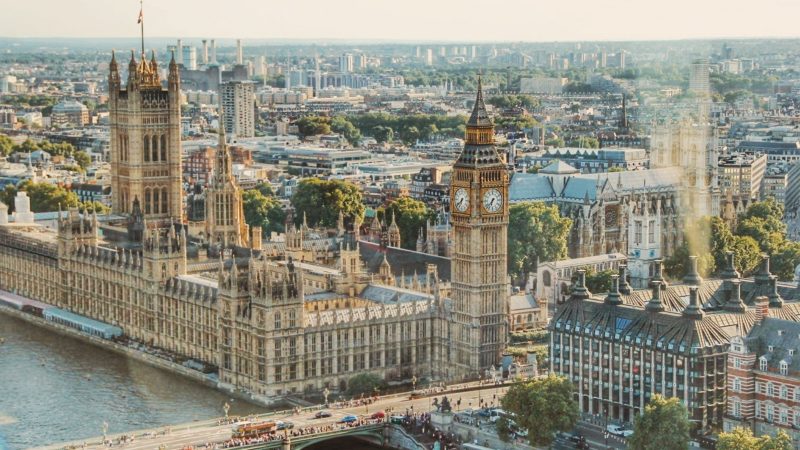
Over the bank holiday, an announcer on my local radio station asked in real concern: “Has parliament always been as bad as this, or are we just better aware of how MPs behave?” He was not talking about recent appalling legislation that has gone largely undiscussed or the many financial abuses of the current government, but the way MPs seem to do as they like. ‘Partygate’ is the sink into which much of the cabinet has sunk, but there is plenty more to appal and dismay the public about what happens in parliament. At a time when Hope Not Hate is warning of a rise in support for far-right candidates, Westminster is falling into disrepute in ways that demand fundamental reform. There is little sign this issue is receiving the urgent attention required.
The reputation of Westminster politicians is not just a question of the scandals that dominate the headlines. Westminster figures have been misbehaving at least since the sleaze scandals of the 1990s, which New Labour exploited for its 1997 landslide. Yet, after the landslide, there was no obvious clean up of the Westminster bubble and little comment on this failure. The only factor the commentariat is interested in is the number of MPs. But at the 2001 election, four years after the landslide, while New Labour retained its Westminster majority, a tipping point was passed: turnout dropped below 70%. In every election since 1945, turnout had been above 70%. At no election since 1997 has it reached 70%, and while I have never seen an analysis of turnout by constituency, it would not be surprising if working-class seats did not experience the greatest fall.
For the next 20 years, New Labour continued to lose votes, and David Cameron eventually pulled the Tories round, emulating Tony Blair and regaining the middle-ground voter, with the help of the Lib Dems in coalition from 2010 to 2015. Austerity was Cameron’s calling card and helped Jeremy Corbyn win the Labour leadership in 2015, when Labour supporters had had enough of supporting dismantling the welfare state and Scottish voters had quit in favour of the nationalists. Less obviously, the contrast between Westminster posturing and the more down-to-earth politics of the devolved administrations, the elected mayors and local government more generally had become an issue. At the 2019 election, both major parties realised Westminster itself generated problems, which both major parties promised to address.
The ‘Westminster Problem’, as seen in the 2019 manifestos
The key promises were as follows:
Labour: “For many people, politics doesn’t work. The Westminster bubble is a world away from their daily lives… The renewal of our parliament will be subject to recommendations made by a UK-wide constitutional convention led by a citizens assembly. The convention will answer critical questions on how power is distributed in the UK.”
Tories: “In our first year, we will set up a constitutional democracy and rights commission that will… come up with proposals to restore trust in our institutions and in how our democracy operates…”
Developing the germ of an idea
Since winning the 2019 election, the Tories have experienced a two-and-a-half-year roller coaster and now prefer major constitutional change to take place without discussion, while Labour has gone into limbo. Yet, the failure of the Tories to set up the promised constitutional commission is a major one, which demonstrates that they are not interested in letting ordinary voters have any say in the political rules. Since that is the mentality which underlies partygate and the elected dictatorship which they are practicing, this makes initiating progress on this issue attractive. It would, however, require the creation of a constitutional convention led by a citizens’ assembly as promised in Labour’s 2019 manifesto.
The proposal in the 2019 manifesto is no more than the germ of an idea, which is a major reason for its lack of impact at the time and for why it has been forgotten. The narrow constitutional focus took the politics away from the issue of the central role and performance of the Westminster parliament, and there has to be a reversion to this. But, more importantly, the proposal has to produce terms of reference which can satisfy a majority of voters. To do this will require a working party which can assess best practice across similar regimes. A political party can only push the boat out: setting up a broad and inclusive process not one run by a single political party.
Both major parties went into the 2019 election with undeveloped ideas for constitutional reform which never became big issues in the election. It is clear Labour’s approach was the right one, and with the Tories showing unmistakably in every facet of their politics that they believe there is no role for voters in politics aside from election time, Labour can show the way. Given that the party campaigned on this policy with no ill effects, it should not be controversial to say that this is the way to go. On this issue, Corbyn did point in the right direction.




More from LabourList
Nudification apps facilitate digital sexual assault – and they should be banned
Diane Abbott suspended from Labour after defending racism comments
Labour campaign groups join forces to call for reinstatement of MPs